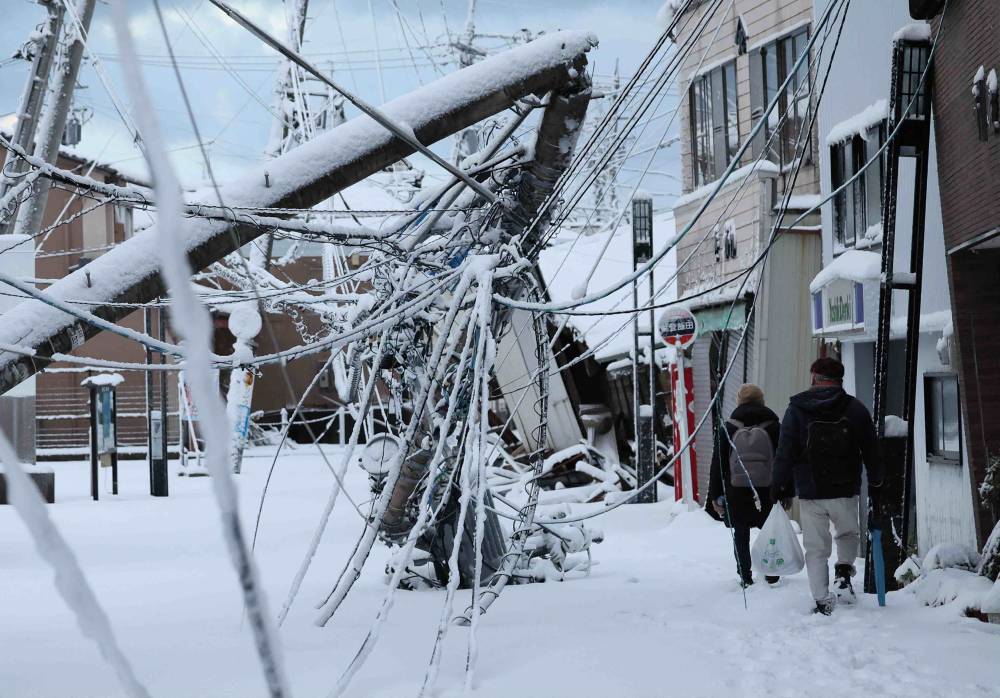Japan quake toll hits 161 as snow hampers relief

SHIKA - The death toll from Japan's New Year's Day earthquake jumped to 161 on Monday as snow complicated relief efforts with more than 2,000 people still cut off and many others lacking power or in crowded emergency shelters.
Authorities said 103 people were still missing after the 7.5-magnitude quake that toppled buildings, sparked a major fire and triggered tsunami waves over a metre high in the central Ishikawa region.
As of Sunday, almost a week later, more than 2,000 people were still cut off by the damage the quake and an estimated 1,000 landslides did to roads on the worst-hit Noto Peninsula.
In the last two days, the region has also been blanketed in snow, with some areas receiving more than 10 centimetres (four inches) overnight, making the operation harder still.
Against the odds, a woman in her 90s survived five days under the wreckage of a collapsed house in the city of Suzu before being saved on Saturday.
"Hang in there!" rescuers were heard calling to the woman, in police footage from the rainy scene published by local media.
"You're gonna be OK!" they shouted. "Stay positive!"
Not all were so lucky, with Naoyuki Teramoto, 52, inconsolable on Monday after three of his four children's bodies were discovered in the town of Anamizu.
"We were talking of plans to go to Izu," a famous hot spring resort after his daughter passed her high school entrance exam, he told broadcaster NTV.
- Packed shelters -
Days of rain increased the risk of further landslides, while the fresh heavy snow could cause more buildings to collapse under its weight, the regional government warned.
Around 18,000 households in the Ishikawa region remained without electricity on Monday, while more than 66,100 households were without water on Sunday.
For the 28,800 people packed into government shelters, many were also without sufficient water, electricity and heating, according to media reports.
"Disaster-related deaths must be prevented at all costs. I want to improve the poor environment in shelters," Ishikawa governor Hiroshi Hase told broadcaster NHK.
"The first priority has been to rescue people under the rubble, and to reach isolated communities," Prime Minister Fumio Kishida told NHK on Sunday.
The government has "deployed various police and fire department helicopters" as well as small groups of troops on foot to reach the isolated communities, he said.
Japan experiences hundreds of earthquakes every year, though most cause no damage because of strict building codes in place for more than four decades.
But many structures are older, especially in rapidly ageing communities in rural areas like Noto.
The country is haunted by the monster quake of 2011 that triggered a tsunami, left around 18,500 people dead or missing and caused a nuclear catastrophe at the Fukushima plant. - Harumi Ozawa and Kyoko Hasegawa / AFP









